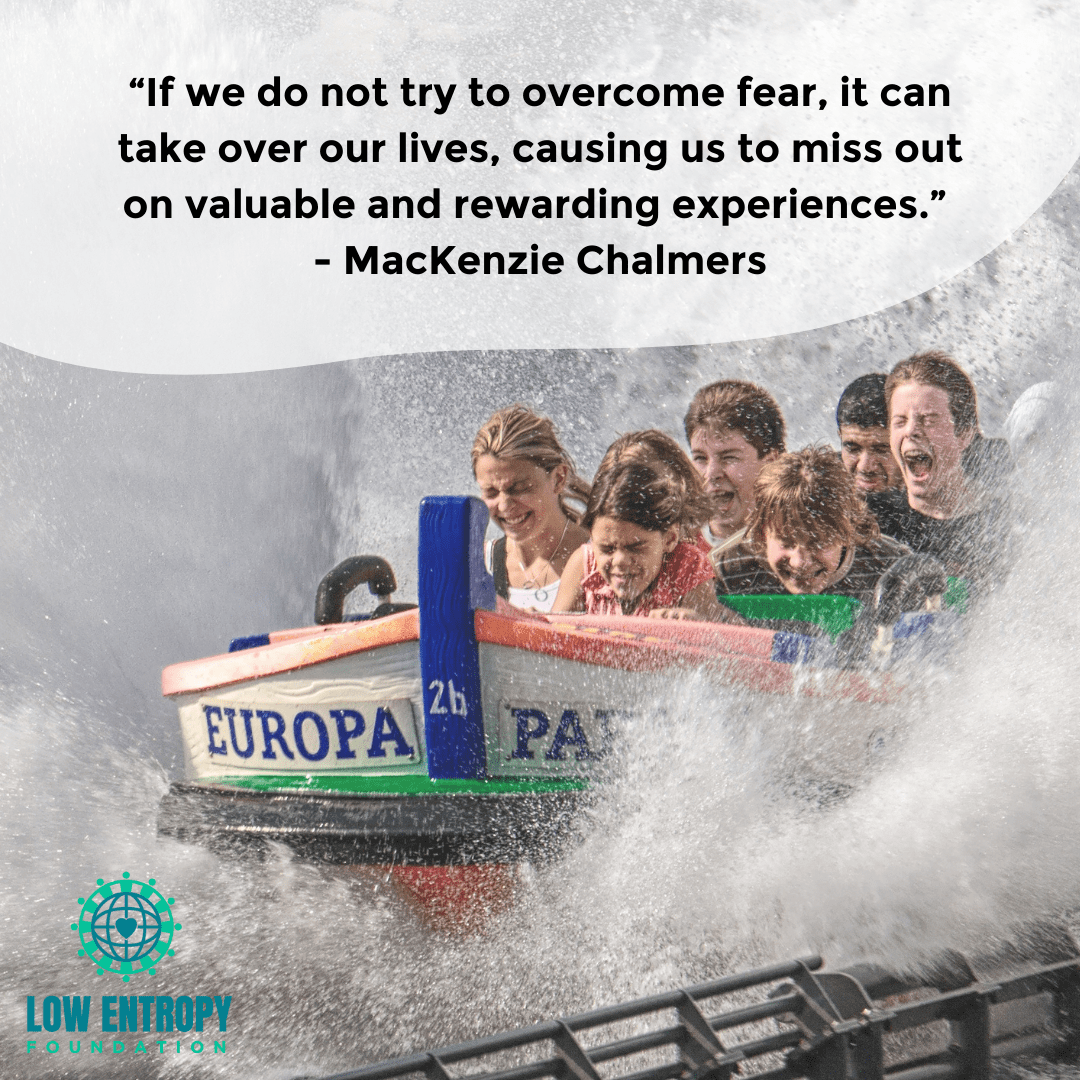MacKenzie Chalmers (she/her/hers), Low Entropy Volunteer Writer
As individuals, the experience of fear may determine our next steps in our journeys. We fear objects, people, experiences or change. We fear the unknown. Fear draws on our emotions, often creating feelings of panic to rise within our bodies. It can result in avoidance of the reason for the fear.
As children, we may have feared the dark, the monsters in our closets or underneath our beds, or the basement.
We fear change. Change in our home, lives, school or daily activities.
We fear failure. Receiving bad grades, losing a competition or game, or losing out on an opportunity can result in feeling like you have failed.
We fear the unknown. The potential to lose someone close to us, whether they are a family member, friend or family pet, is a factor that can create anxiety from the unknown.
These are all ways that fear becomes present within us, growing until it begins to affect our daily lives. Sometimes we can grow out of a fear, and sometimes we cannot.
Some steps to overcome fear:
Think about the fear.
Take a moment and think about the fear that you are experiencing. Are you about to do something that could cause an injury if done wrong? Perhaps you are about to learn how to ride a bike or skate for the first time, or are learning how to drive a car. You may be scared of getting hurt or hurting someone else, causing you to fear that activity. Think about the fear and make an attempt to understand the fear.
If possible, educate yourself about the fear.
You may be taking part in an activity such as skydiving, bungee jumping or ziplining, or riding a new rollercoaster at an amusement park. The activity itself can appear scary due to the height or another risk factor. However, complete as much research as possible. Research the safety measures of each activity. Research written material, watch videos from others sharing their own experiences, ask people that you may know about their own experience with those activities. Research the fear in any form that is available and you can create comfort within yourself, eliminating the fear.
Prepare and practice.
If it is possible, practice before taking part in the activity that is creating the fear. For example, you may fear public speaking. Read aloud to yourself, practicing your speech, and then slowly ask people to listen to you speak, increasing the amount of people in order to gain comfort in others watching and listening to you.
Choose the right crowd.
People can motivate you. Surround yourself with people who will push you to complete the activity that is making you fearful. Choose people who will support you and try to comfort and reassure you.
Visualize.
Remain positive. Visualize the outcome and the happiness you will experience when completing the activity that is making you fearful. Remember the reason you wanted to do the activity in the first place.
Talk to someone about the fear.
Talk to someone about your fear. You may think that keeping your fear to yourself will help. Talking to someone may allow for a weight to be lifted off of your shoulders. That person could understand your fear and relate to it, and may be able to offer advice.
Breathe.
Keep breathing. If you get yourself into a panic, remembering to breathe could help you relax.
Fear lives within ourselves. It becomes present in many ways that are different for everybody. If we do not try to overcome fear, it can take over our lives, causing us to miss out on valuable and rewarding experiences.
Fear will never go away, but we can try to overcome it each time.
—
MacKenzie is a digital media enthusiast with interests in various aspects of media. She takes part in novel hunting, photo and video creating and creative writing.







